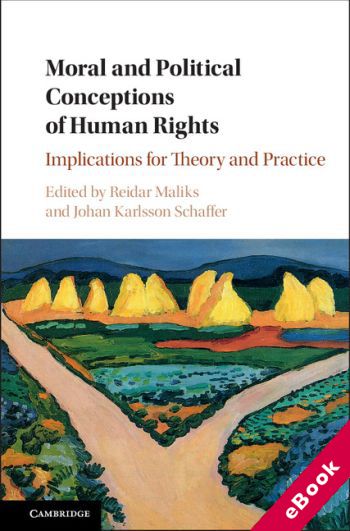
The device(s) you use to access the eBook content must be authorized with an Adobe ID before you download the product otherwise it will fail to register correctly.
For further information see https://www.wildy.com/ebook-formats
Once the order is confirmed an automated e-mail will be sent to you to allow you to download the eBook.
All eBooks are supplied firm sale and cannot be returned. If you believe there is a fault with your eBook then contact us on ebooks@wildy.com and we will help in resolving the issue. This does not affect your statutory rights.
In recent years, political philosophers have debated whether human rights are a special class of moral rights we all possess simply by virtue of our common humanity and which are universal in time and space, or whether they are essentially modern political constructs defined by the role they play in an international legal-political practice that regulates the relationship between the governments of sovereign states and their citizens.
This edited volume sets out to further this debate and move it ahead by rethinking some of its fundamental premises and by applying it to new and challenging domains, such as socio-economic rights, indigenous rights, the rights of immigrants and the human rights responsibilities of corporations. Beyond the philosophy of human rights, the book has a broader relevance by contributing to key themes in the methodology of political philosophy and by addressing urgent issues in contemporary global policy making.